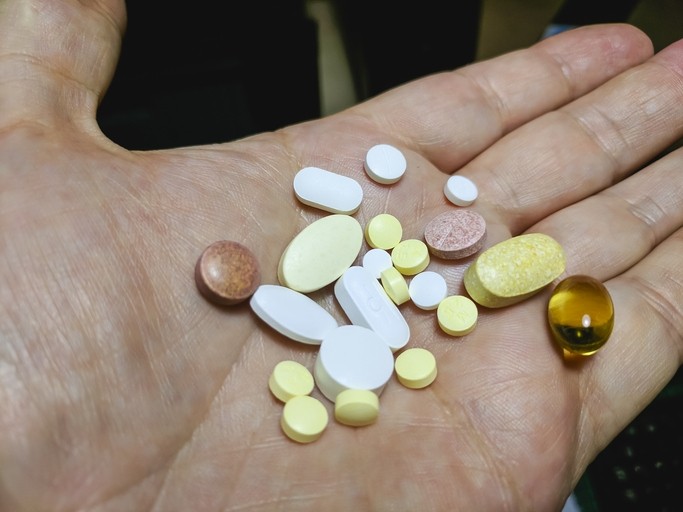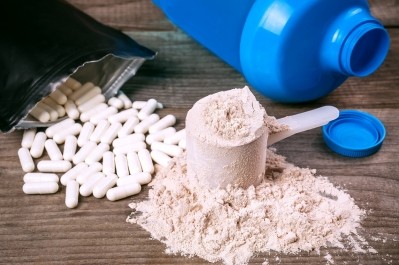CRN highlights coronary artery disease prevention, savings in new report

The CRN Foundation has enlisted Frost & Sullivan for another analysis of the potential health care cost savings that could be realized if certain at-risk individuals were to use specific dietary supplements shown to lower disease event risk.
CAD in focus
The Council for Responsible Nutrition's recent health care cost savings report, Supplement to Savings (“S2S”), identified up to $17.74 billion in annual net savings if specific dietary supplements are used by the at-risk target populations most susceptible to coronary artery disease (CAD). The study, commissioned by the CRN Foundation and conducted by Frost & Sullivan, examined the risk reduction effects supplementation can have on specific conditions, including CAD. The Foundation announced the overall findings in August 2022.
Mike Meirovitz, CRN’s director of government relations, told NutraIngredients-USA that the report shows tangible evidence that these supplement regimens can reduce the risk of coronary artery disease, thus leading to significant direct and indirect cost savings for the entire healthcare system.
The report highlighted such savings when incorporating omega-3 fatty acids, magnesium, vitamin K2 and soluble fiber ingredients to address particular contributors to CAD.
Vitamin K2: $9.48 billion
The report reminds us that clinical studies show how vitamin K2 serves to improve both cardiovascular and bone health. K2 plays a role in reducing coronary artery calcium accumulation–a risk factor for CAD–along with increasing calcium content in bone. The expanded targeted use of vitamin K2 by specific populations could reduce CAD-attributed events by 15.7% and could save the US healthcare system a whopping $9.48 billion per year between 2022 and 2030.
Omega-3 Fatty Acids: $4.47B
Omega-3 fatty acids containing DHA and/or EPA are one of the most well-researched dietary supplement ingredients available, including a large body of evidence supporting their contributions to cardiovascular health. The US Food & Drug Administration (FDA) has permitted qualified health claims for the omega-3s EPA and DHA for coronary heart disease since 2004 and for hypertension since 2019. The report noted that annual average cost savings from the widespread daily use of preventive amounts of omega-3 EPA+DHA could be $4.47B per year between 2022 and 2030.
Magnesium: $2.32 billion
Last year the FDA announced a qualified health claim for products containing magnesium for reduction of blood pressure, a key contributor to CAD, based on scientific research showing a link between magnesium use and blood pressure reduction, particularly during the past 10 years. The report found that regular use of magnesium by specific at-risk populations could dodge over 102,000 events a year between 2022 and 2030, while saving $2.32B in healthcare savings.
Soluble Fiber: $1.47 billion
FDA has authorized health claims for soluble fibers from certain foods, including psyllium husk and beta-glucan from oat and barley, and their ability to reduce the risk of coronary heart disease. The S2S report found an average cost savings of $1.47 billion a year in healthcare costs from the increased utilization of soluble fiber for its heart healthy effects.
Andrea Wong, PhD, CRN senior vice president, scientific and regulatory affairs noted that 75% of healthcare spending goes to chronic disease and only 3% to preventative care. “This research shows how dietary supplements can be a critical tool in reducing the risk of a major health crisis; thus, it is imperative that health stakeholders and patients alike pay attention to these results. While the report examines achievable cost savings, the personal and emotional impact should not be overlooked. Coronary artery disease takes a devastating toll on millions of Americans, and this report shows there are options available to help reduce likelihood of a devastating condition,” she said.
Getting the word out
Wong emphasized that everyone has a role to play in increasing awareness about the benefits of dietary supplements.
“Our efforts have been focused on getting this report in front of as many relevant stakeholders as possible. From a healthcare provider perspective, this report can help registered dietitians and doctors to be better educated about dietary supplements when consulting with patients. Sharing this report with lawmakers may help encourage policies that will improve consumer access to dietary supplements. And communicating the health benefits and healthcare cost savings to consumers will help them make informed choices about their health,” Wong said.
Meirovitz said with a new Congress underway, CRN is looking forward to discussing the report and its findings with lawmakers and then evaluating reasonable policy options.
The full report can be found here.
















